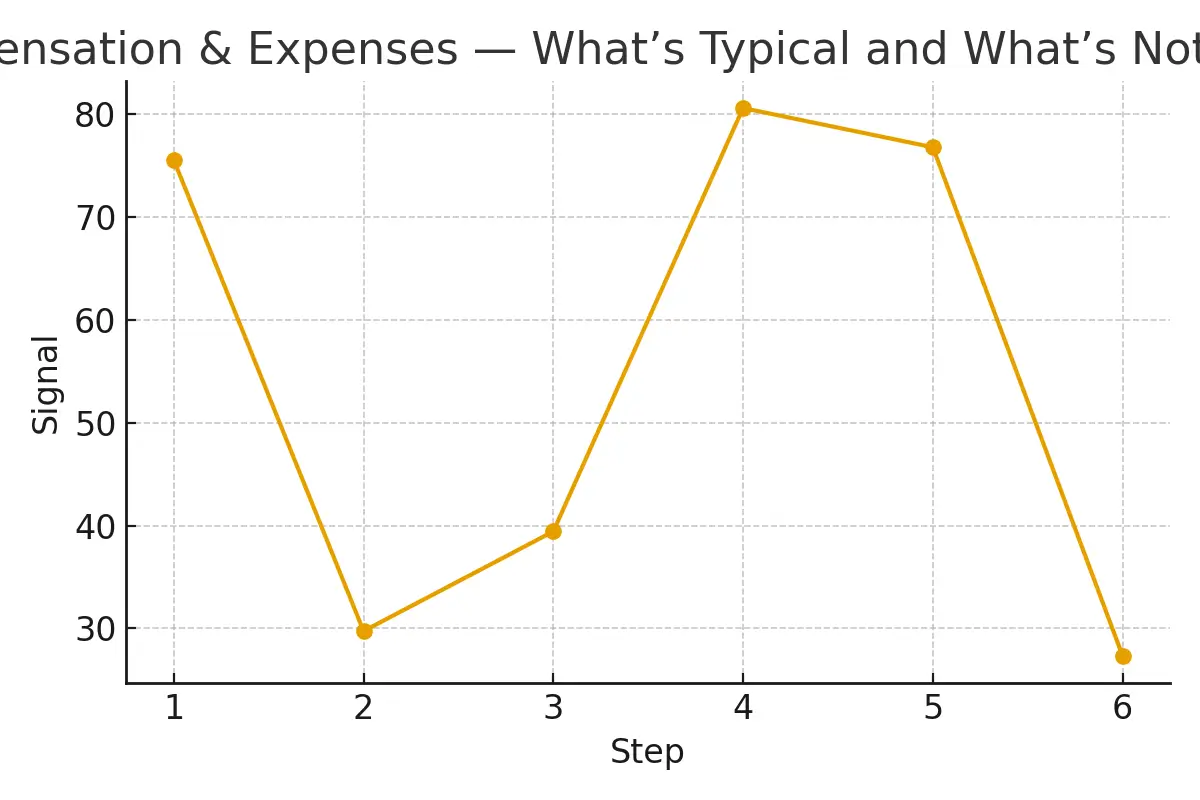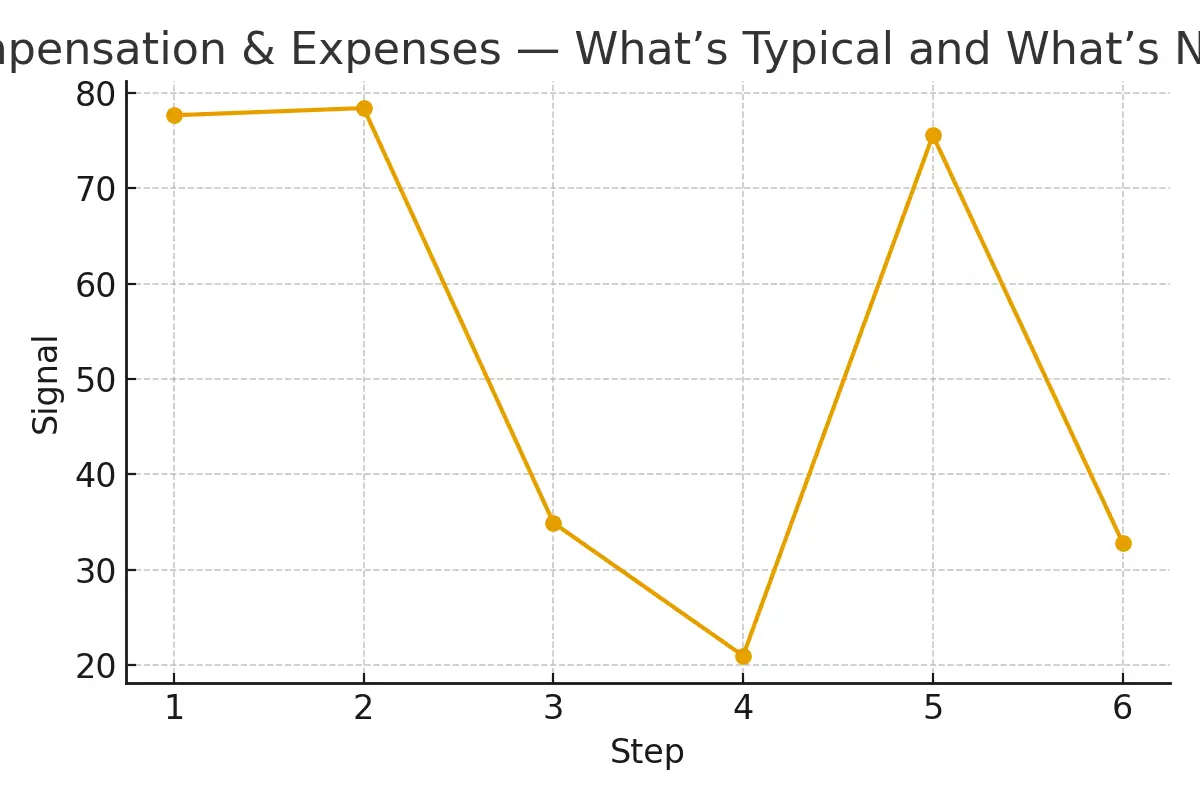
Understanding egg donor compensation and expenses can feel complicated—especially when you’re trying to figure out what’s normal, what’s optional, and what’s worth questioning. This guide breaks down what’s typical and what’s not so you can make smarter decisions within the Egg Donation 101 pathway.
This article also includes expert insights, a real patient case study, testimonials, and a clear path for next steps at Surrogacy4All. Let’s make compensation and expenses simple, transparent, and completely demystified.

Understanding Compensation & Expenses: Definitions and Where This Fits in the Journey
Before diving into numbers, you need a clear picture of where compensation appears in the egg donation journey. The process has two broad cost categories:
Donor Compensation
This is the financial payment to the donor for her time, commitment, and physical effort—not for the eggs themselves. It’s standard, ethical, regulated, and widely accepted.
Typical compensation includes:
- Time spent on appointments
- Travel inconvenience
- Self-injections and hormonal medication side effects
- Retrieval day and recovery
Typical range:
$8,000–$20,000 depending on location, donor experience, and clinic policies.
What’s not typical:
- Payments based on a donor’s looks, race, or education (this is ethically discouraged)
- Bidding wars for donors
- Unclear or changing compensation mid-cycle
Medical & Non-Medical Expenses
These are the recipient’s responsibility, not the donor’s.
This includes:
- Screening tests
- Medications
- Monitoring appointments
- Genetic testing (PGT-A)
- Retrieval costs
- Legal fees
- Embryo creation and storage
- Transfer cycle
Where compensation fits:
Compensation is paid only once the donor reaches specific milestones, often after retrieval. But expenses occur throughout the timeline—and this is where patients sometimes get surprised.
Eligibility Signals: When to Escalate, Pause, or Reset
The donor and recipient journeys both have critical eligibility checkpoints, each carrying cost implications.
Eligibility Signals for Donors
These checkpoints determine whether a donor can proceed:
- AMH levels acceptable
- AFC (antral follicle count) in the normal range
- Genetic carrier screening clears compatibility
- Psychological assessment
- Infectious disease panel compliance
- Consent readiness
Eligibility Signals for Recipients
Recipients may need pauses for:
- Endometrial issues
- Hormonal imbalance
- Medication dose adjustments
- Unclear medical history requiring additional testing
Why this matters:
Escalating or pausing at the right time saves thousands in wasted medication, clinic time, and cycle cancellations.
Step-By-Step Process With Timing Checkpoints
The egg donation process blends medical steps, legal steps, and financial obligations. Understanding the timing helps eliminate stress.
Step 1: Initial Consult (Recipient + Clinic)
Typical cost: usually free–$300
What happens:
- Review past records
- Define goals
- Set expectations about cost structure
Timing checkpoint: quickly identify missing labs or medical issues.
Step 2: Donor Selection
Costs: free to $1,500, depending on agency
What’s normal:
- Access to donor profiles
- Clear compensation is listed publicly
- Transparent genetic carrier status
What’s not normal:
- Hidden fees
- Limited information
Step 3: Donor Screening
Costs: $2,000–$5,000
Tests include:
- Ovarian reserve
- Genetics
- Infectious disease panel
Timing checkpoint: this stage predicts potential cycle success rates.
Step 4: Legal Agreements
Costs: $500–$1,500 per party
What’s typical:
- Attorney for donor
- Attorney for the recipient
- Identity and confidentiality clauses
- Compensation schedule
Step 5: Cycle Synchronization
Costs: $500–$1,200
This includes medications to align donor and recipient timelines.
Step 6: Ovarian Stimulation
Cost: $3,000–$6,000
You pay:
- Donor medications
- Monitoring visits
Timing checkpoint: decisions on dosing matter—a lot.
Step 7: Egg Retrieval
Cost: $8,000–$14,000
Includes:
- Anesthesia
- Surgical team
- Facility fees
Step 8: Fertilization & Embryo Culture
Cost: $4,000–$8,000
Optional add-ons:
- ICSI
- Assisted hatching
Step 9: Genetic Testing (PGT-A)
Cost: $3,000–$7,000
Not always required but influences your cumulative success rate.
Step 10: Embryo Transfer
Cost: $3,000–$6,000
What’s typical:
- Single-embryo transfer
- Lining checks
- Medication support
Timing checkpoint: lining thickness triggers go/no-go decisions.
Pros, Cons & Practical Costs (Line-Item Examples)
Understanding the difference between typical and non-typical costs prevents budget shock.
Typical Expenses
- Donor compensation: $8K–$20K
- Medications (donor + recipient): $5K–$12K
- Retrieval procedure: $8K–$14K
- Fertilization + culture: $4K–$8K
- PGT-A optional testing: $3K–$7K
- Storage fees: $500–$1,200/year
- Legal fees: $500–$1,500
- Monitoring & bloodwork: $1K–$3K
Not Typical or Red-Flag Expenses
- Surprise add-ons not discussed in the consult
- Paying the donor more mid-cycle
- Overly high donor compensation ($30K+) outside special circumstances
- Facility charges added retroactively
- PGT-A “mandatory” without explanation
- Medication markups beyond pharmacy norms
Pros of a Transparent Cost Structure
- Fewer financial surprises
- Predictability
- Better emotional readiness
- Increased trust in the clinic
Cons of Poor Cost Transparency
- Budget inaccuracies
- Cycle cancellations you didn’t anticipate
- Payment delays
- Stress and confusion during treatment
Outcome Drivers: What You Control vs What You Monitor
Not all variables impact success equally. Understanding the difference improves decision-making.
What You Control
- Genetic testing decisions
- Medication timing
- Number of cycles planned
- Transfer policies (e.g., single embryo)
- Communication with the clinic
What You Monitor
- Donor ovarian response
- Embryo development
- Recipient lining quality
- Genetic results
- Hormone levels during cycle
Why it matters:
Focusing on controllable decisions reduces unnecessary expenses and improves cumulative live-birth odds.
Questions to Ask Your Clinic
- What’s included in the base fee?
- What are the optional vs the required expenses?
- What are your cancellation criteria?
- How do you handle poor donor response?
- How many mature eggs do you expect?
- Is PGT-A useful for my age/medical situation?
- What’s your typical embryo-to-live-birth ratio?
Expert Quote
“Protect timing and keep plans simple—quality improves when noise goes down.” — Clinical Team
Patient Case Study
A couple from Brooklyn started with inconclusive test results, unsure whether to continue trying naturally, fertility IVF, or choose donor eggs.
When they contacted Surrogacy4All:
- Their nurse immediately reviewed their labs.
- The team identified timing issues, not fertility decline.
- A streamlined donor egg pathway was proposed.
- Costs were reviewed with full transparency.
- A clear timeline and cancellation criteria were set.
Testimonials
- “The steps finally made sense.” — A.&J., Manhattan
- “Costs were clear; no surprise bills.” — L., Hoboken
- “Nurses replied fast with practical coaching.” — K.&V., Queens
Additional Insights Many Patients Overlook
- Cycle cancellation criteria sometimes shorten the time to pregnancy.
- Single-embryo transfer improves predictability and safety.
- Genetic testing decisions affect budget stability.
- Recipient prep impacts embryo competency and timing.
- Embryo culture duration influences implantation odds.
- Diagnostic accuracy thresholds shape overall embryo quality.
These insights help refine your strategy while avoiding unnecessary expenses.
Frequently Asked Questions (FAQs)
Q: Is this medical advice?
Ans : No. This guide helps you prepare for informed conversations with your clinic.
Q: How many cycles should I plan for?
Ans : Think in ranges, not fixed numbers. Cumulative success improves with planning 1–3 cycles depending on donor egg yield and test results.
Q: What drives cost most?
Ans : The biggest cost drivers are:
- Medications
- Genetics
- Anesthesia
- Number of cycles
- Optional add-ons
Next Steps with Surrogacy4All
If you’re ready to move forward, Surrogacy4All offers:
- Free 15-minute nurse consult (212) 661-7673
- Upload your labs for a second opinion
- Customized cost breakdown for your case
Conclusion
Navigating compensation and expenses in egg donation becomes much simpler when you understand what’s typical, what’s not, and how timing influences both cost and outcomes. With the right framework, clear cost structure, and simple decision rules, the egg donation process becomes less overwhelming and far more predictable.
By focusing on the steps you control, monitoring key signals, and asking the right questions, you protect both your emotional readiness and your financial investment. And with transparent clinics like Surrogacy4All, you gain clarity, confidence, and a pathway designed to support your success.

Dr. Kulsoom Baloch
Dr. Kulsoom Baloch is a dedicated donor coordinator at Egg Donors, leveraging her extensive background in medicine and public health. She holds an MBBS from Ziauddin University, Pakistan, and an MPH from Hofstra University, New York. With three years of clinical experience at prominent hospitals in Karachi, Pakistan, Dr. Baloch has honed her skills in patient care and medical research.






